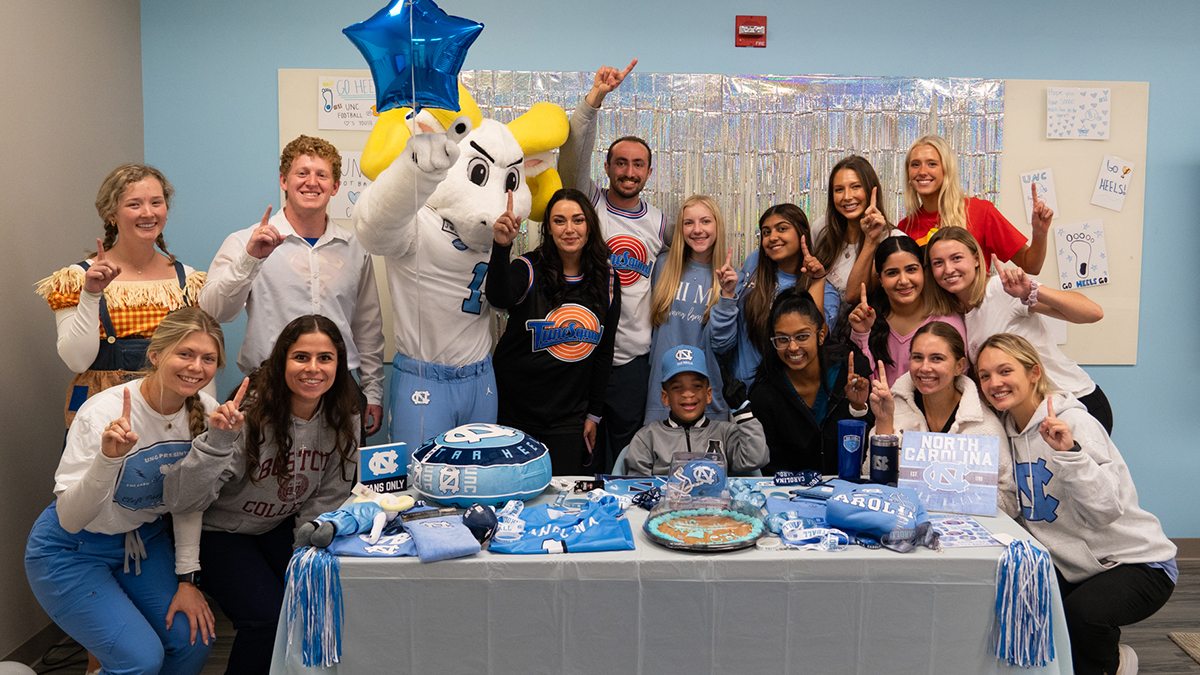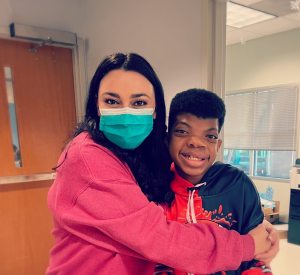UNC Craniofacial Center provides holistic care
Medical, dental and other experts work together to support patients with cleft palate and other conditions.

A newborn baby is a blessing. But children who begin life with a cleft lip, cleft palate or another craniofacial condition have a medically complex start. That’s when the multidisciplinary experts at UNC’s Craniofacial Center envelop the family with care and expertise aimed at enhancing the child’s future.
“Our team advocates for our patients, and we center all decisions on what is best for them. Everybody on this team is passionate about what they do,” said Jessi Hill, administrative and clinical manager for the center in the Adams School of Dentistry.
The center treats and supports pediatric and adult patients with cleft lip, cleft palate and craniofacial conditions such as Treacher Collins syndrome, Crouzon syndrome and Pierre Robin sequence.
The team includes a neuropsychologist, speech and language pathologists, an orthodontist, plastic surgeon, otolaryngologists, maxillofacial surgeons and pediatric dentists. The center’s director is Dr. Amelia Drake, Newton D. Fischer Distinguished Professor of Otolaryngology/Head and Neck Surgery in the UNC School of Medicine.
Their work usually begins after a charge nurse or pediatrician calls from a community hospital like Wake Med or Cape Fear Valley Medical Center. A newborn with a cleft needs care. Hill records all the information then contacts the baby’s family.
First, Hill congratulates the parents on their new baby. “I let them know that they are not alone and that, although it may seem overwhelming, we are here for them. That opens communication and helps them not feel lost.”
Hill describes what the center does and connects the parents with a team surgeon. She asks about concerns such as feeding, nutrition or timeline for care. If a problem exists, Hill finds someone to help. She explains the team’s process and the typical care timeline, including an initial visit with a surgeon, followed by one with the team. Then she sends the information and additional resources to the parents.
“A baby is always a blessing, so making sure that they feel excited, positive and well-supported is my goal with that initial call,” Hill said.
After an appointment with their team surgeon at a satellite clinic, patients visit Chapel Hill, where specialists evaluate the patient’s needs. They may also conduct diagnostic testing and have patients undergo radiologic imaging like a CT scan or a hearing test.

Jessi Hill, administrative and clinical manager, hugs Gavyn Leathers, a Craniofacial Center patient since his birth, during a clinic visit. (Courtesy Jessi Hill)
The team meets afterward to share observations, including psychosocial, emotional and anatomical. They establish treatment recommendations then offer a plan to parents.
Plans don’t always call for surgery but might include speech therapy before another visit. “Success is more than just surgical outcomes. We look at the whole child and want them to thrive,” Hill said. “These kids transform. They receive interventions and begin to flourish.”
The team prioritizes holistic care, considering emotional and cultural factors. They know that patients sometimes must overcome obstacles — finances, insurance, transportation, access to care, language translation. Hill, a former U.S. Army medic, stays available by email and phone.
“I tell patients, ‘If you’re not able to access the care that you need, we’re home base for you. We will advocate on your behalf,’” Hill said.
The team is developing initiatives to help patients feel like any other child, such as support networks for talking about similar experiences. “We want them to be able say, ‘My grafting is coming up,’ or ‘Surgery is soon. What can I expect?’” The center hopes to continue to host events like fall 2023’s Carolina Cheer Day. Patients and families visited campus for a day of activities that culminated with participation in halftime at a varsity football game.







